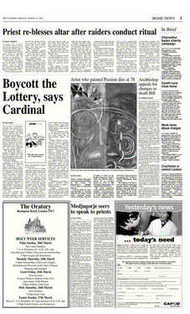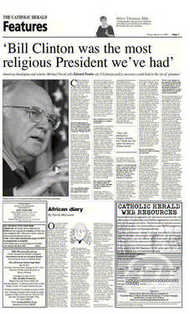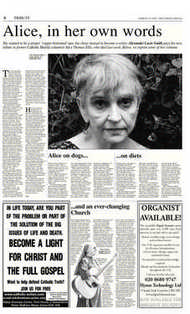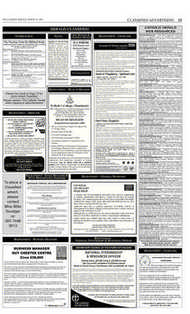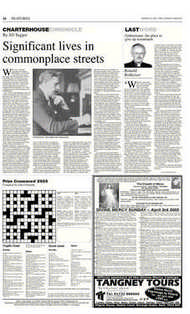Page 10, 18th March 2005
Page 10

Report an error
Noticed an error on this page?If you've noticed an error in this article please click here to report it.
Tags
Share
Related articles
Blaming The Empire For The World's Woes
Why There Was Nothing 'glorious' About 1688
English Is Ory's Catholic Future
Good Intentions And Dire Consequences
An Inglorious Settlement
Why can’t William marry a Catholic?
David Twiston Davies
We have long been waiting for repeal of the legislation which has prevented a Catholic sitting on the throne since the early 18th century. But the rumble of protest has been particularly noticeable in Scotland since the restoration of an Edinburgh Parliament, which has given Scots a new confidence while sending minds back to the Stuart dynasty which was driven into exile.
There is some suspicion that the demand for change reflects a nationalist desire to weaken the links binding the United Kingdom, and that it reflects a desire to strike at the place which religion retains in our national institutions. But these motives certainly cannot be attributed to Cardinal O’Brien, the Archbishop of St Andrews and Edinburgh, or to Edward Leigh, the Tory MP who sits for Gainsborough, in the heart of Middle England.
Mr Leigh has introduced a Private Member’s Bill into the Commons to remove the bar which, he points out, prevents Prince William from marrying a Catholic although he is free to wed a Jew, a Muslim, an atheist or even a satanist. The Bill is unlikely to become law, if only because there is unlikely to be time to debate it in these dying days of the current Parliament. The Government will not wish to see the House dipping a toe into what could prove a constitutional quagmire, particularly after its own failure to abolish the office of Lord Chancellor and the narrow escape it made from a deep hole created by the Prince of Wales’s register office wedding.
It can also be urged that such a change is inappropriate in these volatile times. We might think that Christian fundamentalism has no place in our politics. But the Rev Ian Paisley could well turn the Bill into a juicy general election issue if there was any sign of it becoming law. The old fear of “Rome rule” still lives. Adrian Hilton, the Tories’ (swiftly dumped) Slough candidate, has spoken out against repeal of the Act of Settlement and strongly implied that the European Union is a papist plot.
Nevertheless, even if Mr Leigh’s Bill is likely to fail, he has done a service to his fellow Catholics in drawing attention to an issue which must be faced one day, perhaps sooner than we might expect. Some 25 years ago it was rumoured that the Prince of Wales was interested in Princess Marie-Astrid of Luxembourg as a bride until he realised the troubles that her Catholicism could cause.
Since then, there have been at least five members of the Royal Family who have disqualified themselves as potential successors to the throne by becoming Catholics or marrying Catholics. Although the Duke of Kent is not among them, because his wife converted after their marriage, his sons the Earl of Ulster and Lord Nicholas Windsor and his grandson Lord Downpatrick cannot succeed under present law. Prince Michael of Kent excluded himself when he married Princess Michael, while Marina Mowatt, daughter of Princess Alexandra, gave up her chance as 24th in line when she married a Catholic.
It is not impossible that when Prince William and Prince Harry have sowed their wild oats, they might be attracted by the prospect of settling down with a pretty convent-educated girl, like so many of us have done before them.
If this should happen, and Mr Leigh’s Bill, or perhaps one on similar lines, has been passed, we should not underestimate the shock that this would be for many people. It would not only confront Protestants with the wrongness of the Acts of Settlement and Succession in excluding the Stuart kings on the grounds of their faith; it would stir those fears which still lie deep beneath the surface of many who never go to church.
The easy way out would be for Catholics to go along with the fiction that, of course, religion no longer matters; but that argument is not open to us. We will have to work hard to reassure our countrymen. One way in which this might be done is through an oldfashioned loyal address signed by Catholics throughout the United Kingdom and Northern Ireland.
blog comments powered by Disqus




